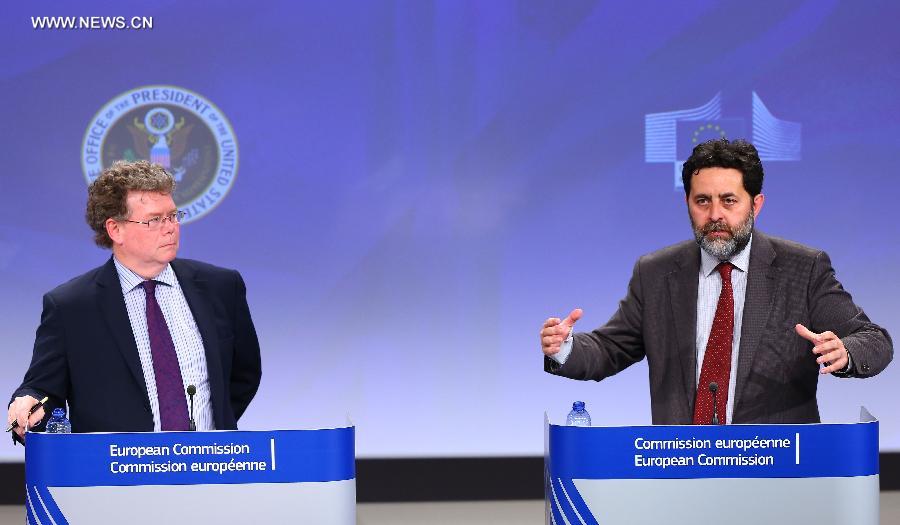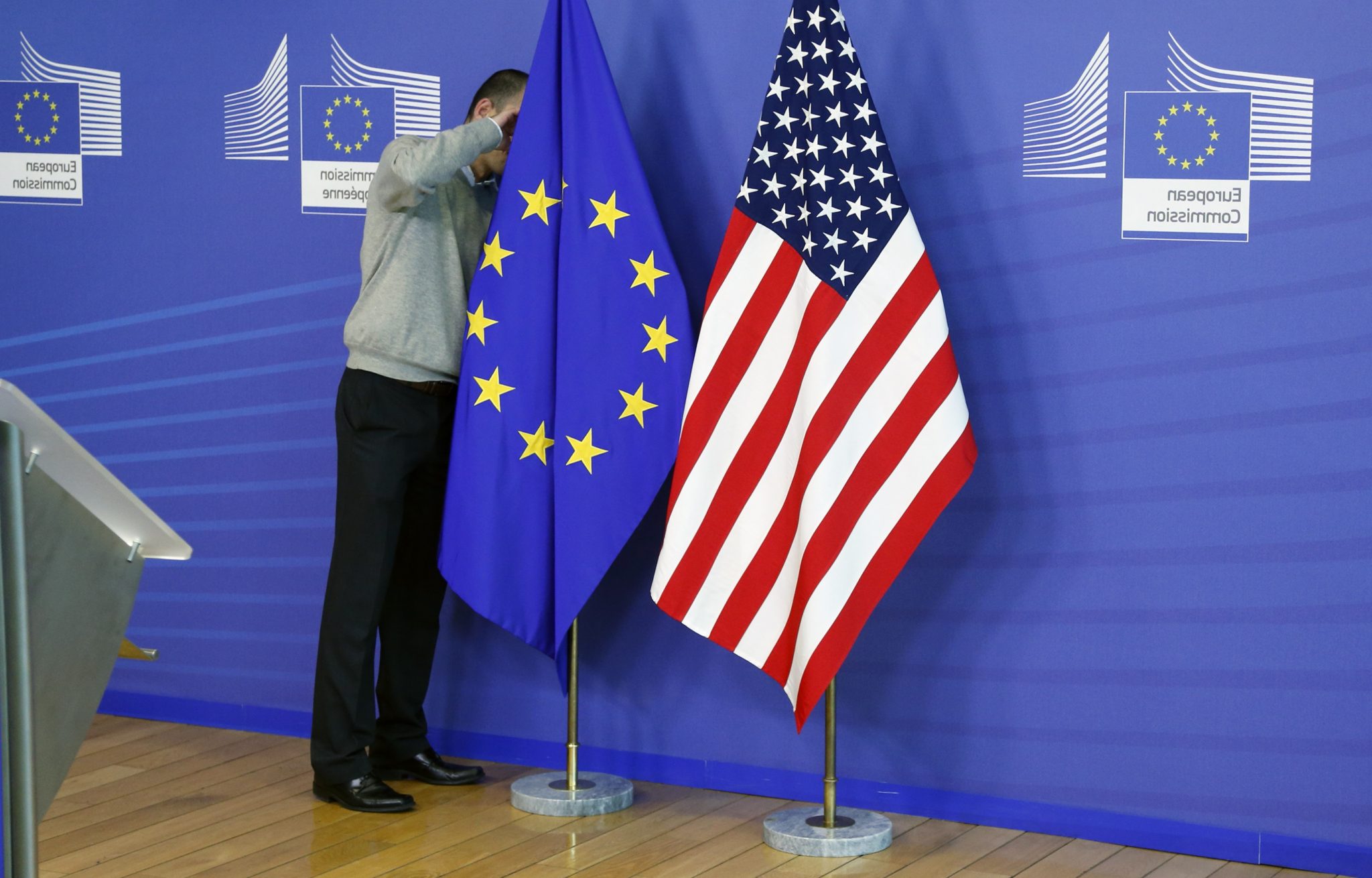
Next month, the tenth round of negotiations on the Transatlantic Trade and Investment Partnership (TTIP) will take place in Brussels. American and European negotiators hope to conclude the negotiations by the end of 2015 but challenged by strong public opinion in Europe as well as some European governments, TTIP has very little chance of seeing the light.
The trade agreement aims at the creation of a free trade zone between the United States and the European Union. As a result, remaining trade barriers would be abolished, norms and procedures would be standardized, and tariffs reduced. One of the most controversial part of the treaty is the Investor State Dispute Settlement (ISDS) mechanism which many fear would weaken the European judicial system and give corporations too much power compared to states.
In May, MEPs threatened to oppose TIPP in its entirety if the Investor State Dispute Mechanism (ISDS) mechanism was included. This mechanism would have allowed private companies to sue states and have access to arbitration tribunals which many fear would lead to corporations interfering with national politics and having a say in policy implementation.
Earlier this month, a vote on a resolution regarding ISDS was cancelled in the European Parliament. MEPs in favor of the resolution feared they would not be able to gather the necessary number of votes for it to pass. As a result, the European Commission, which is in charge of the negotiations, will have to take into account the outcome of the vote and reconsider its position on several aspects of the treaty.
The issue divides parties internally but also defies traditional alliance patterns between parties. The United Kingdom’s right-wing party UKIP and the left-wing Green Party both voted against TTIP, while the Labour Party voted in favor of it. In France, MEPs from four different political groups also expressed their opposition to TTIP as long as the ISDS mechanism was part of it.
Not only is TTIP facing strong opposition in the European legislature, it is also met with strong hostility from the European people. As of today, more than two million signatures from all over the European Union have been gathered through the European Citizen’s Initiative (ECI). The ECI’s initiative against TTIP echoes the results from a poll conducted by the Pew Research Center showing that only 39% of Germans, 40% of Austrians, and 50% of French are supporting TTIP.
For TTIP to become a reality, it will have to be accepted and ratified by all 28 EU member state. In most European states, national legislatures will have to vote on TTIP and several governments have already expressed their voting intentions at the Council of Ministers.
In 2014, the Bulgarian government announced it would not sign the treaty if the United States did not lift the obligation for Bulgarians to the US with a visa. More recently, Greece’s ruling party, Syriza, announced it will vote against TTIP “as a big gift… to the European people”. In countries like Germany and France, where public support for TTIP is low, the treaty has very little chance of making it through legislature.
Because of strong public and governmental opposition, and the way the European Union works, Transatlantic Trade and Investment Partnership is destined to fail. Rallying 28 European governments and peoples to the same cause is always a difficult goal to reach, and unfortunately for TTIP supporters, this issue is too polarizing.
Even though TTIP is unlikely to succeed anytime soon, its opponents should be aware that it is not buried for good. It will most likely come back on the negotiating tables in a new form.



